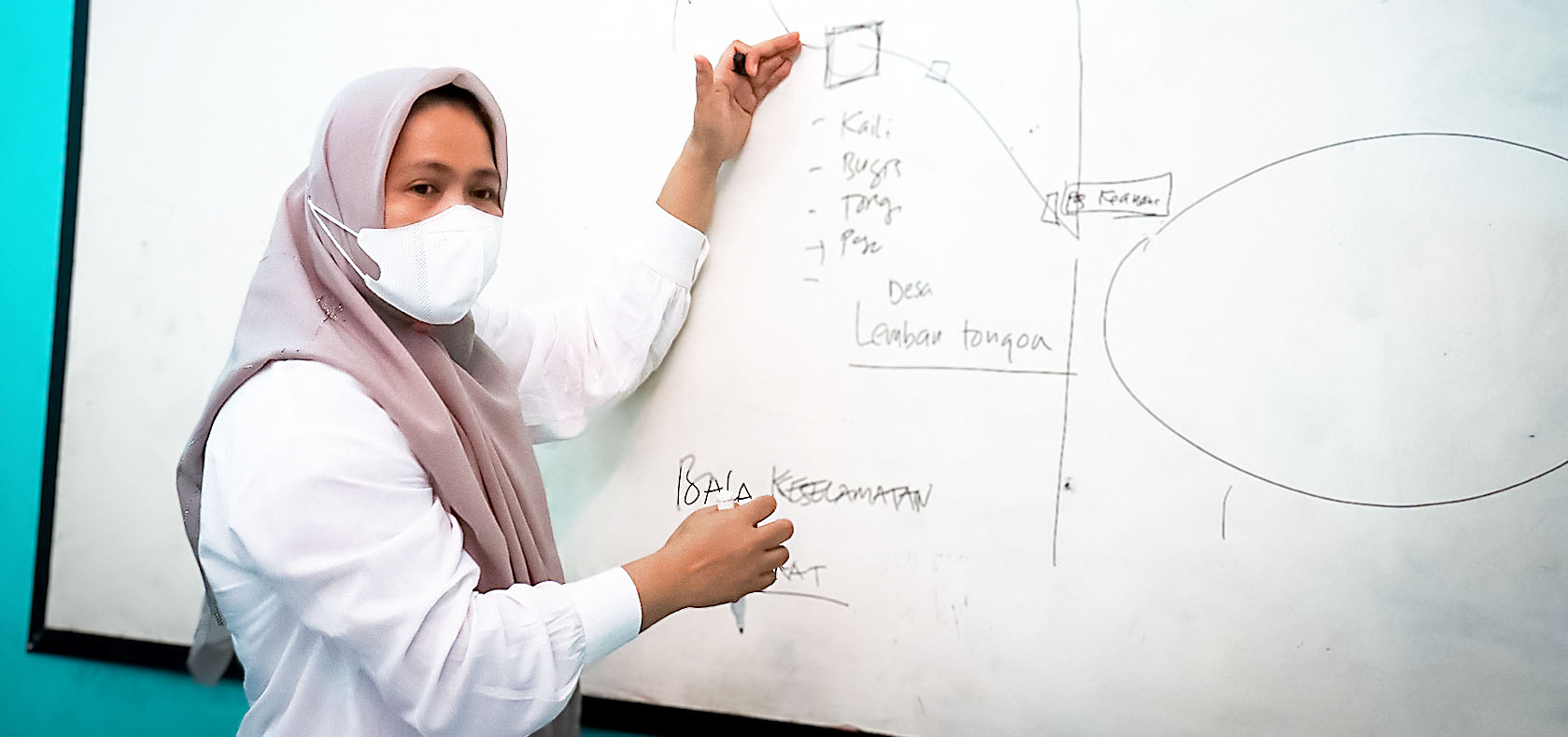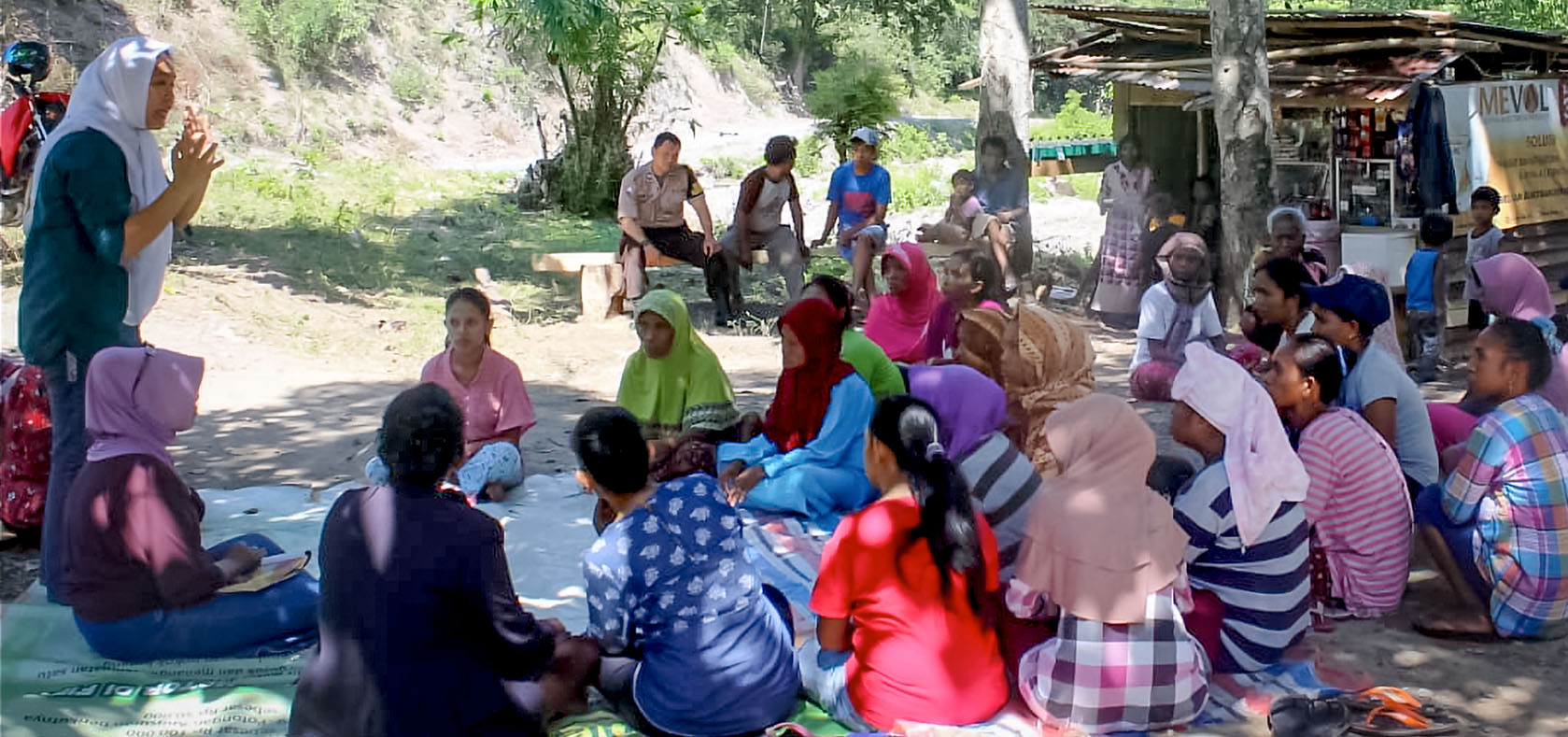In an Indonesian province, the people devise a gender-responsive action plan for peace
Date:
Author: Xinyue Gu
Palu, Indonesia – Supported by UN Women and its project partner, the Asian Muslim Action Network (AMAN) Indonesia, activists and government authorities who believe that women can play important roles in the effort are devising gender-responsive ways to tackle the risks of violent extremism in Indonesia’s Central Sulawesi province.
In 2021, Indonesia issued its first National Action Plan on Preventing and Countering Violent Extremism that Leads to Terrorism. UN Women helped integrate women’s needs and concerns into the plan to promote the United Nations Women, Peace and Security agenda in Indonesia.
To translate the national action plan into a local one and to ensure that local communities consider gender perspectives, UN Women partnered with AMAN Indonesia, a civil society organization, to upskill religious leaders, government officials, youths and civil society organizations on promoting gender equality and peace in six provinces. The Government of Australia funds the project.
In one of those provinces, Central Sulawesi, the final draft of a regional action plan on preventing and countering violent extremism was recently submitted to the Ministry of Home Affairs for clearance. The draft plan highlights women’s participation and leadership in the effort.
UN Women and AMAN Indonesia’s partner in Central Sulawesi is Lingkar Belajar Untuk Perempuan (LiBu Perempuan), or Learning Circle for Women, a non-governmental organization based in the provincial capital Palu that protects and empowers women and girls. LiBu Perempuan gathered diverse groups to draft the regional plan.

“Inclusion of women and other marginalized groups in the prevention of violent extremism is essential,” said Dewi Rana, the organization’s director.
LiBu Perempuan enabled minority groups, including indigenous people, to share their views on ways to promote inclusive peace and prevent extremism. It also organized monthly meetings where housewives, young women and student groups exchanged ideas about terrorism and extremism.
“Women have distinct experience of disasters and conflicts, and they have unique perspectives and narratives on peace and security,” Rana said.
Rana said women can play transformative roles in bringing peace to the community. Local wisdom, stories of female leaders, and cultural practices can be used to promote social cohesion, she said.
Central Sulawesi has a long history of not only extremism and terrorism, but also communal and social conflicts because of its diverse ethnicities, religions and culture.
A terrorist attack killed four residents of Lemban Tongoa village in the province’s Sigi regency in November 2020. That prompted Kesbangpol (the National and Political Unity Office), the government agency leading the localization of the national action plan on extremism to expedite the creation of the regional action plan.
“Central Sulawesi had a dark period during the religious conflict in Poso in 1998. Although the Government of Indonesia mediated the peace talks and declared peace in the end, religious intolerance persists today and is exploited by an ISIS-affiliated network – the East Indonesia Mujahideen,” said Fahrudin Yambas, Head of Kesbangpol in Central Sulawesi.
“For this reason, the Central Sulawesi provincial government is committed to conflict prevention efforts by educating the public and advocating for tolerance and diversity to keep the society from being exposed to radical ideologies, so that everyone can live peacefully despite the differences.”

Besides closely working with women’s organizations like LiBu Perempuan, the provincial government also runs an innovative “inclusive village” programme that dedicates a portion of its funds on preventing and countering extremism to efforts to include more women and girls in decision-making. The programme is now being piloted in Donggala and Sigi regencies; programme activities include organizing women to teach children the values of diversity and tolerance.
Muhammad Ayyub, Secretary of Nupabomba village in Donggala regency, said he wants to not only engage more women in village activities but also increase awareness of gender equality among men and boys.
“Gender equality means nothing if women are the only ones who understand it,” he said.
Nupabomba’s village development plan is aligned with the United Nations Sustainable Development Goals and gives top priority to gender equality.
The national Government mandates that women occupy at least 30 per cent of seats in the Village Consultative Bodies in Indonesia. In Nupabomba, women’s representation has reached almost 50 per cent.
Ayyub said he believes a lot of women will be running for the village election this year.
“Women’s leadership will add value to a better future of the village,” he said.